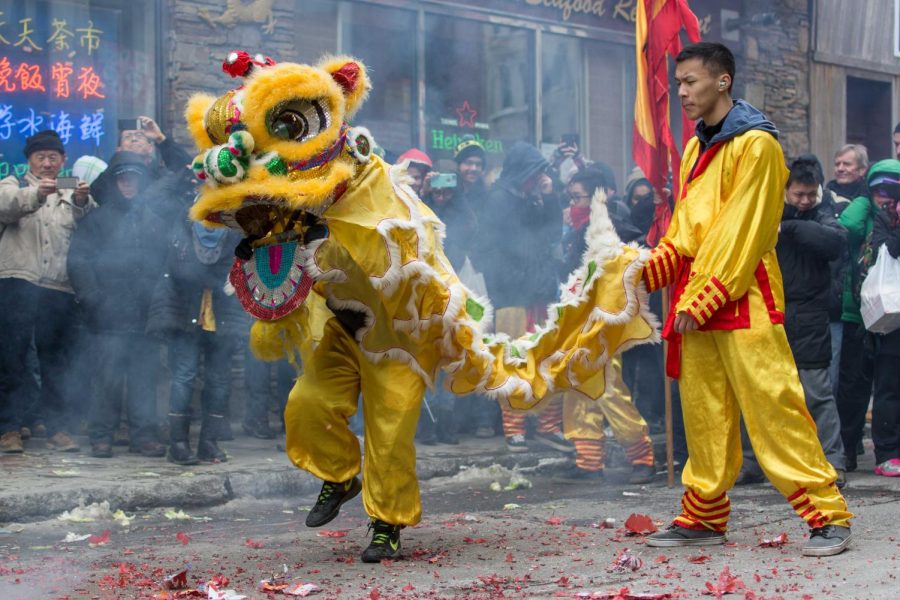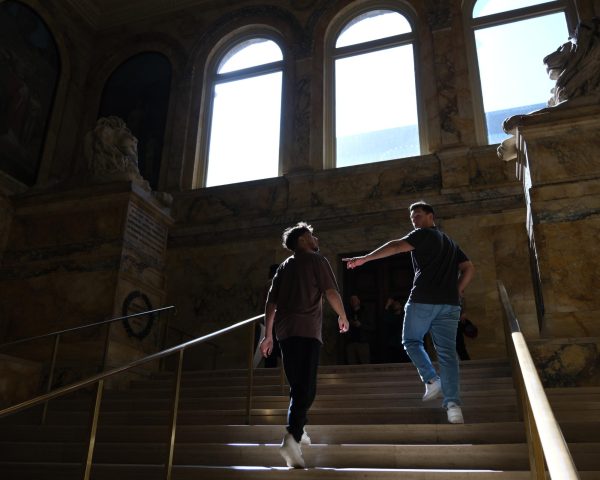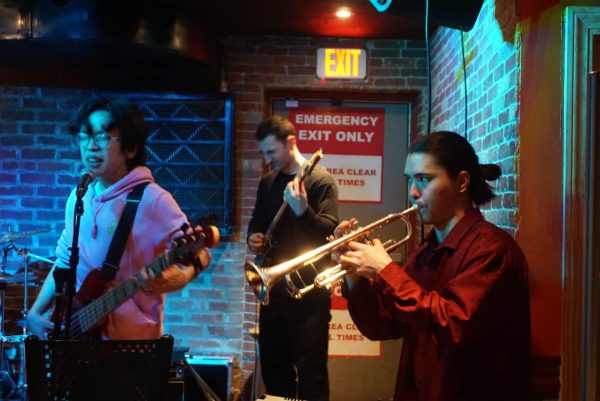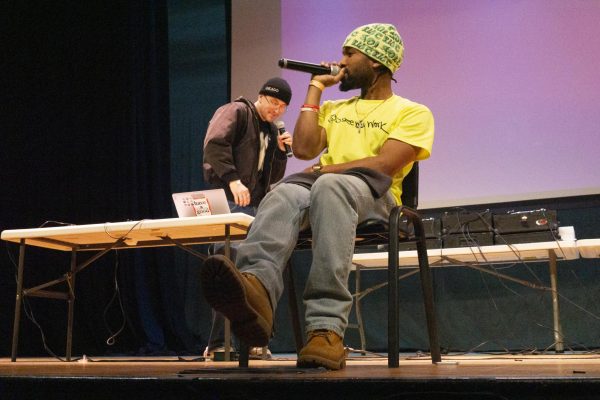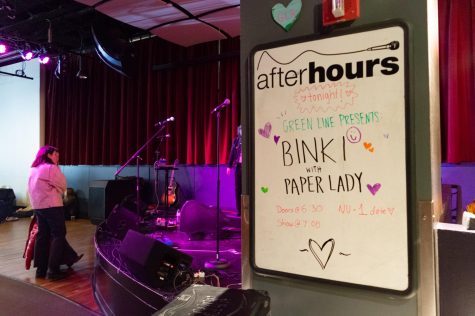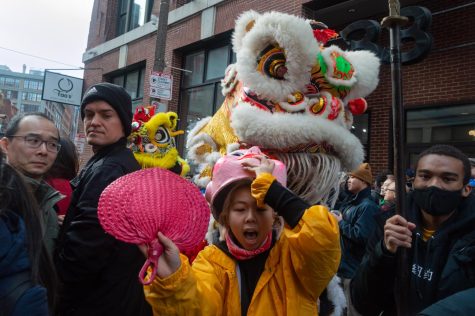Out with the Rat, in with the Ox: Boston’s Asian communities prepare for virtual Lunar New Year
Before COVID-19, many people celebrated Lunar New Year in large groups, setting off firecrackers, sharing meals and spending time with family. This year, the festivities are virtual.
February 2, 2021
During this time of year, Asian communities across the world come alive, with red and gold-accented lanterns in full bloom, lion dances performed in the streets and feasts upon feasts served in every household.
While Lunar New Year will look different this year — and is typically observed differently among Asian cultures — it is always a celebration of family and love for more than 1.5 billion people worldwide.
For third-year health sciences major Alice Yun, that usually means savoring her grandmother’s homemade “tang yuan” (sweet rice balls) stuffed with black sesame filling. Meanwhile, second-year PharmD student Samuel Seo cherishes playing Yut Nori, a traditional Korean board game, with his family and loved ones during the new year.
Professor Hua Dong recalled the special moments in sitting down with all generations of her family every year. Growing up in Nanjing, China, she would gaze in awe as her grandmother filled the dinner table for their grand holiday meal, even when food wasn’t plentiful for them at the time, she said.
“The joy, the expectation, the high hopes for a better year and the love from family — I still remember every detail of it,” Dong said.
This year, Lunar New Year falls on Friday, Feb. 12, commencing the Year of the Ox. The Chinese zodiac follows a repeating 12-year sequence, with each year denoting an animal sign.
To celebrate on campus, Northeastern’s Chinese Student Association, or CSA, and Korean American Student Association, or KASA, are teaming up to coordinate a virtual Lunar New Year Gala to be held Feb. 20. Students will be able to participate in a variety of hands-on activities in breakout room “booths,” where they can play cultural games, learn calligraphy and even fold origami hanbok, which is traditional Korean clothing worn at celebrations.
“We’re trying to incorporate different elements of the specific cultures we represent,” said Yun, the co-events coordinator for CSA. “I think this is an important educational opportunity for students — of course, in a fun way.”
The event aims to bring together Asian Americans on campus, not only to share each other’s culture but also to break any pandemic-induced isolation, said Seo, the Pan Asian American Council representative for KASA.
“When you miss a holiday that you usually celebrate at home, you can feel lonely at that time,” he said. “I want people to feel less lonely if that’s an issue for them, and come hang out with people who are similar to them.”
Yun echoed Seo’s sentiment, emphasizing their goal to create a strong sense of community and belonging.
“Of course, we can’t replace your family, but it’s the cheesy idea that you have a family here at Northeastern,” Yun said. “And that we’re always here for you.”
Above all, Yun believes that the event is a time for positivity and optimism heading into the new year.
“Besides togetherness, I think it represents hope for what will come next [and] wishing for prosperity and good health,” Yun said. “I think that’s definitely something for this year that we need to emphasize.”
Symbolically, those who are born in the Year of the Ox are usually hardworking, caring, honest and selfless, Dong said. Thus, she said the Chinese zodiac sign holds much promise for 2021.
“I think [the Ox] brings a lot of hope,” she said. “There’s so many idioms associated with Ox, and all of them are positive.”
Aside from student-organized galas, Dong and other Northeastern faculty have hosted an on-campus new year’s event for more than 10 years. While planning it virtually presents a unique set of challenges, she hopes to maintain fellowship among the school community. If all goes as planned, Dong may even be able to host a virtual dumpling-making class for her students.
“People could really see, touch, eat a lot of great food and really feel the connection with the culture, each other and the community. That was the beauty of it,” Dong said, describing the annual celebration. “But now with the pandemic, it needs more careful planning, dedication and motivation to carry this through.”
While the event is not yet confirmed, Dong believes that hosting an event is necessary for students in a socially-distanced society.
“As a community, especially when we’re all isolated, I feel strongly that it is even more urgent for educators to reach out to students and really create that virtual community,” she said.
Beyond campus life, Boston’s Asian communities, including those in Chinatown and Dorchester, will also be virtually vibrant this year with events such as online lion dance workshops and a livestreamed Tet in Boston.
Usually for Tet, or Vietnamese New Year, thousands of people attend a day-long celebration in Dorchester hosted by the Vietnamese American Community of Massachusetts and the New England Intercollegiate Vietnamese Student Association, or NEIVSA.
NEIVSA’s Theresa Tran and Huy To, the executive director and associate director of Tet in Boston, initially considered whether they should host Tet at all this year, given the pandemic. But they knew that this was an important opportunity for them to celebrate their culture and serve their community.
“It really is a way for me to give back to my community, connect with my Vietnamese roots, as well as hopefully inspire others and younger members to give back to the community as well,” said To, a Quincy native who always attended the event when he was younger.
Their theme for Tet in Boston is “xuân thái bình,” which directly translates to “spring of peace” and fits in response to the adversity faced from this past year.
“2020 was a very unprecedented year for the whole world. It was so challenging for many,” Tran said. “We’re really trying to bring in more hope, more light for the new year.”
While Lunar New Year may be limited to computer screens and individual households, Asian communities are working hard to preserve the uplifting spirit of the holiday.
“It’s really a tough year to celebrate,” Dong said. “But especially because it’s tough, I think we need to do extra to make sure everyone in the community feels the hope, love and care that this holiday embodies.”


